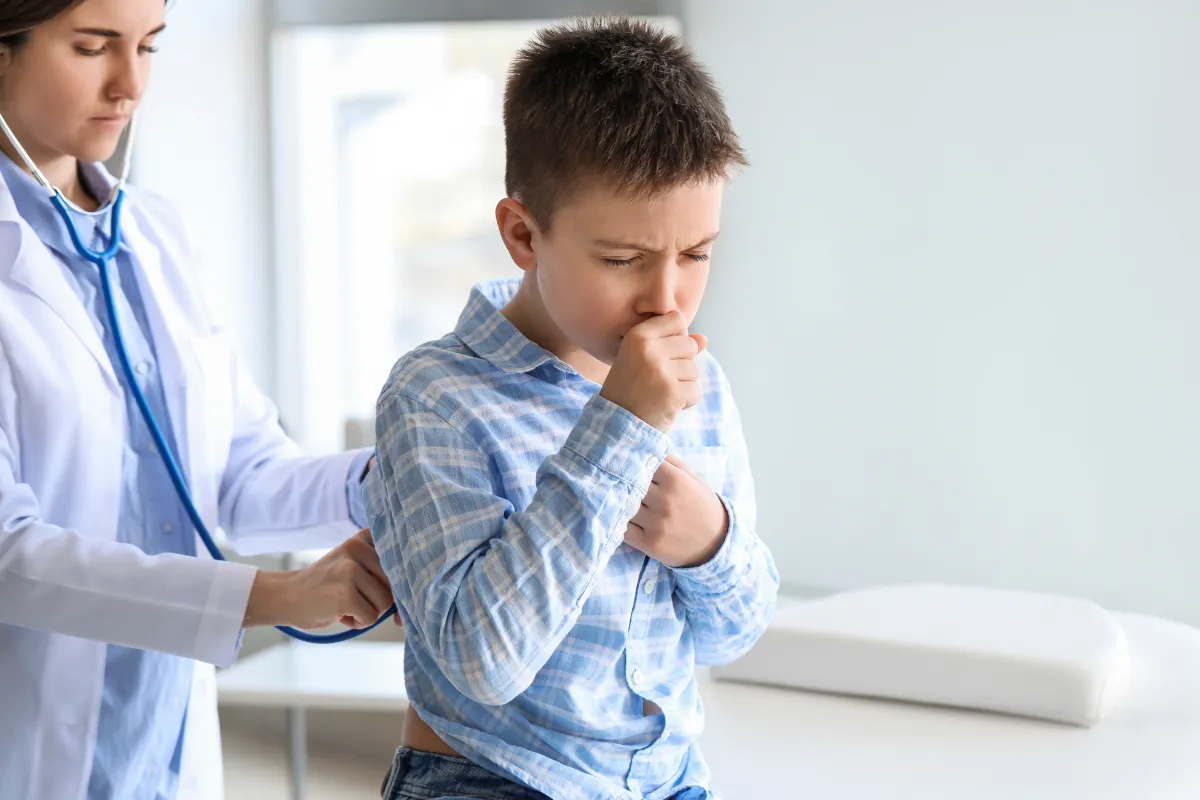Acute Illness Visits: When to Seek Immediate Care in Spring
Spring in Texas is beautiful, but with blooming flowers and warmer weather, it also brings a host of seasonal allergies and illnesses.
It’s not always easy to know when a simple cough or sniffle warrants a trip to the doctor.
Knowing when to seek immediate care for acute illnesses can make all the difference in your recovery.
Understanding Acute Illnesses
Acute illnesses come on suddenly and usually last a short time.
They can range from common colds to more serious infections.
It’s important to recognize the symptoms and know when to seek help.

Common Acute Illnesses in Spring
- Allergies
- Colds and Flu
- Sinus Infections
- Bronchitis
- Strep Throat
When to Seek Immediate Care
Not all illnesses require immediate medical attention, but some symptoms should prompt you to seek care right away.
Here’s what to watch out for:
- High fever (103°F or higher)
- Difficulty breathing or shortness of breath
- Persistent chest pain or pressure
- Severe abdominal pain
- Sudden dizziness or confusion
- Dehydration (decreased urination, extreme thirst)
- Severe vomiting or diarrhea
Comparing Care Options
| Care Option | Pros | Cons | When to Choose |
|---|---|---|---|
| Home Care | Convenient, comfortable, cost-effective | May delay necessary treatment, risk of complications | Mild symptoms, known illness (e.g., common cold) |
| Urgent Care | Faster than ER, more affordable, extended hours | May not have full range of services, potential for long wait times | Moderate symptoms, possible infections, minor injuries |
| Emergency Room | Comprehensive care, immediate attention for severe conditions | Expensive, long wait times for non-emergencies | Severe symptoms, life-threatening conditions |
| Primary Care Physician | Personalized care, continuity of treatment, familiar with medical history | May have limited availability, require appointment scheduling | Non-emergency situations, routine check-ups, chronic conditions like chronic disease management |
Considering your options? We can help! Call us at 346-550-8220 or book a consultation to get started.
What to Expect During an Acute Illness Visit
Here’s what to expect when you come to Dr. A Patient Care, located at 5523 Louetta Rd STE C, Spring, TX 77379, for an acute illness visit:
- Medical History Review: We’ll ask about your symptoms, medical history, and any medications you’re taking.
- Physical Examination: We’ll check your vital signs, listen to your heart and lungs, and examine relevant areas based on your symptoms.
- Diagnostic Tests: Depending on your condition, we may order tests such as a strep test, flu test, or blood work. We offer on-site lab testing.
- Treatment Plan: We’ll develop a personalized treatment plan that may include medications, rest, hydration, and follow-up care.

Prevention Tips for Staying Healthy This Spring
Prevention is always better than cure! Here are some tips to stay healthy during the spring season:
- Wash Your Hands: Wash your hands frequently with soap and water to prevent the spread of germs.
- Stay Hydrated: Drink plenty of fluids to stay hydrated, especially during warmer weather.
- Get Enough Rest: Aim for 7-8 hours of sleep per night to boost your immune system.
- Eat a Healthy Diet: Consume a balanced diet rich in fruits, vegetables, and whole grains.
- Manage Allergies: If you suffer from allergies, take antihistamines or other medications as prescribed by your doctor. Consider scheduling allergy testing.
- Get Vaccinated: Ensure you’re up-to-date on your vaccinations, including the flu shot. We offer a full range of immunizations.
What is considered a high fever in adults?
A fever of 103°F (39.4°C) or higher is generally considered a high fever in adults.
It’s essential to seek medical attention if you have a high fever, especially if accompanied by other concerning symptoms.
For children, the threshold might be lower, so always consult with your pediatrician.
How can I tell if I have a cold or the flu?
Colds and the flu share some symptoms, but the flu tends to come on more suddenly and with greater severity.
Flu symptoms often include fever, body aches, fatigue, and a dry cough, while cold symptoms are typically milder, with a runny or stuffy nose being the main issue.
For accurate diagnosis and treatment, visiting Dr. A Patient Care for cold & flu treatment is recommended.
What are the signs of dehydration?
Signs of dehydration include decreased urination, dark urine, extreme thirst, dizziness, and fatigue.
Severe dehydration can lead to serious complications and requires immediate medical attention.
Make sure you’re drinking enough fluids, especially when you’re sick.
When should I go to the emergency room instead of urgent care?
You should go to the emergency room for severe symptoms such as difficulty breathing, chest pain, severe abdominal pain, sudden dizziness or confusion, or loss of consciousness.
Urgent care is more appropriate for moderate symptoms that are not life-threatening.
If in doubt, always err on the side of caution and seek emergency care.
Does Dr. A Patient Care offer same-day appointments for acute illness visits?
Yes, at Dr. A Patient Care, we understand that acute illnesses require prompt attention.
We strive to offer same-day appointments to address your urgent healthcare needs.
Please call us to check availability and schedule your visit.
Prioritizing your health during the spring season means understanding when to seek professional medical advice.
Dr. A Patient Care is dedicated to providing timely and comprehensive care for all your healthcare needs in Spring, TX.
Being aware of the signs and symptoms that warrant immediate attention ensures you can get the necessary treatment to recover quickly and stay healthy.
Knowing when to seek immediate care for acute illness visits is key to a healthy spring.


